If you hang with people in the web industry, you know that ever since Google implemented one of their biggest algorithm changes ever last month, which we all know as Penguin, people have been upset. Originally, Google said this change was to penalize spammy sites, but it seems in the process some legit sites took a hit in rankings too. Google has made it clear that they will not be manually providing any exceptions, and if you’ve been unjustly penalized, you can follow the new rules to clean up your site and improve your rankings.
For all those people who were just learning about SEO and now feel like the wind has been knocked out of their sails, or for any webmaster who is frustrated with all these changes, I have some good news. As I’ve written before, Richard and I have learned everything we know about SEO from our own research. We have no formal training, and all our SEO here on Bit Rebels we’ve learned from trial and error. I’ve just spent the past several hours reading everything I could about Penguin. I’m sharing this knowledge with you so we can learn about it together. For those of you who haven’t been able to take the time to update yourself on it yet, I want you to know that if you’ve been hit, recovering from it doesn’t seem that bad. It will take some work, there is no doubt about that, but it’s definitely do-able.
For you newbies, the good news for you is that Google is now frowning upon over-optimized pages. Just remember to always write naturally for your readers and not for the search engines. The majority of these changes apparently revolve around linking, keywords and your anchor texts. It’s important not to make everything match perfectly. Again, be natural and type like you would normally talk instead of writing in keywords, if that makes sense. It’s easy to skip the pronouns and prepositions when typing anchor texts and tags, but you want to be sure to include those, like you would if you were talking (that’s what I mean about not writing in keywords).
This new algorithm also looks at reciprocal links, which I’ve always thought were silly anyway. You definitely want to avoid using those. I hope this means I will stop getting a dozen emails everyday asking me to exchange links. Make sure each page has its own content. Never ever copy and paste from another site. It’s not okay to do this even if you give credit to the original site, and this new algorithm will penalize you if you choose to do that. I’m assuming all those sites who copy and paste our blog daily from RSS got a booty slap (there is a way to stop sites from doing that by the way, but I’ll save that for another article).
One part of all this that is still a real blur to me is that it’s clear that part of this new algorithm takes into account the quality of the sites that link to you. There are well over 100,000 incoming links to Bit Rebels. There is no way we can control who links to us… However, overall, just being more natural is the best route to take at this point. Share links in social media, press releases and other places that are natural to share links. If you are already a heavy social media user then you are ahead of the curve as it is. The sites that will most likely experience a problem (just as one example) are those sites that had weak SEO before the Penguin update because they were used to just buying links on other sites to rank for certain keywords. Unfortunately for them, that strategy will most likely not be effective anymore. Now those rankings will have to be earned, not bought.
I could go on and on since this is so interesting to me, but instead I will just direct you to some resources I found that might shed a little more light on this for you. Even though these are packed with useful information, nothing takes the place of doing your own analysis of what works best for your particular site. If you want to do this right, you’ll need to collect your own site’s data to use when making your SEO decisions. Below are five infographics on the topic which I thought were very well put together. I’ve listed the source articles here so you can click on them to read the accompanying articles. I also added a few more in there that I found very helpful. Good luck and may the Google force be with you!
Anchor Text Usage After The Penguin Update
SEO Audit Yourself Against The Google Penguin
Google Penguin Update Recovery Advice From Bing
What Is Google Penguin?
Google Penguin Recovery
Google Penguin Update by 8 Digital
Google Penguin Update by Attach Media
Google Penguin Update by froggo
Click Infographics To Enlarge
Via: [Source Sites Linked Above]
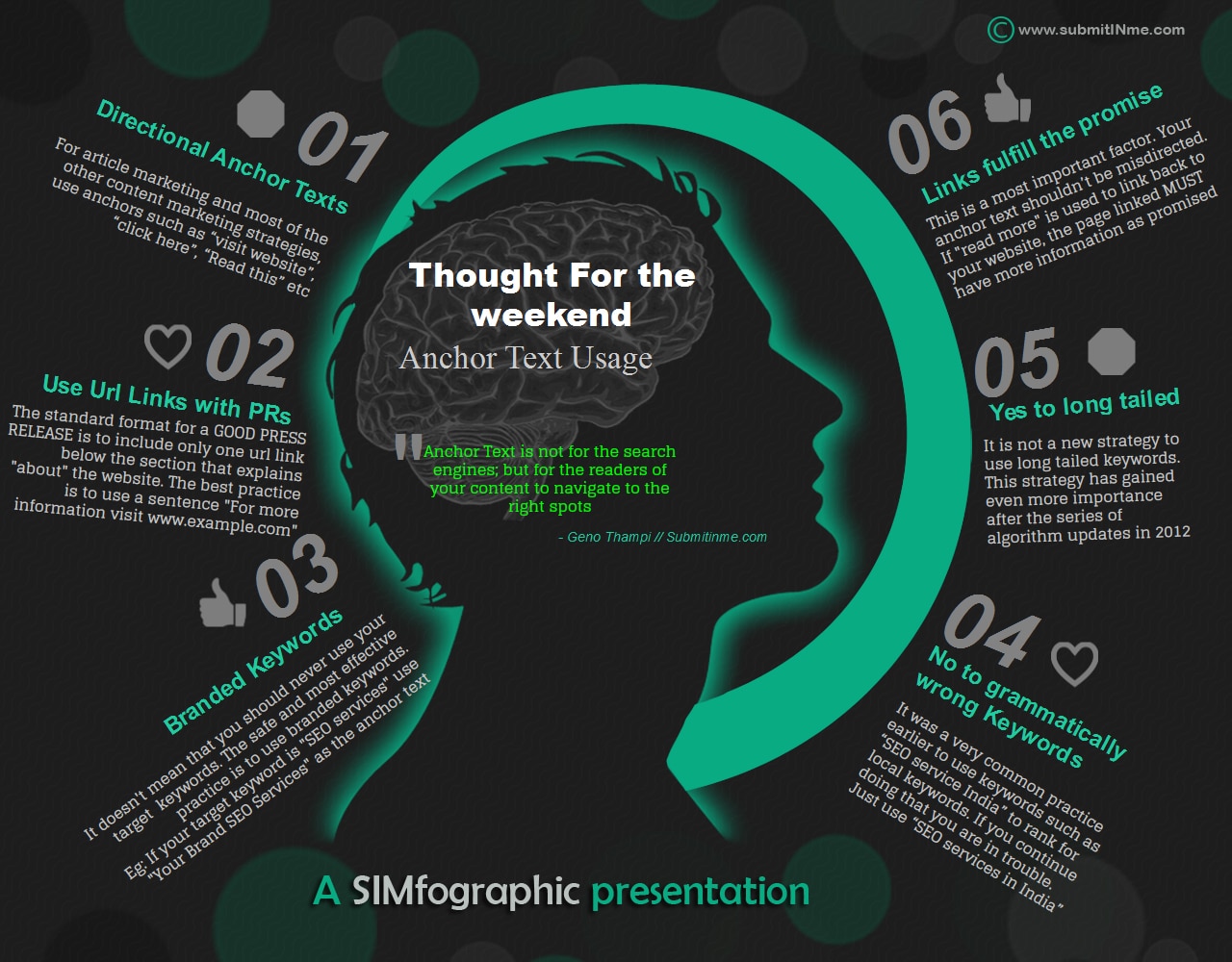
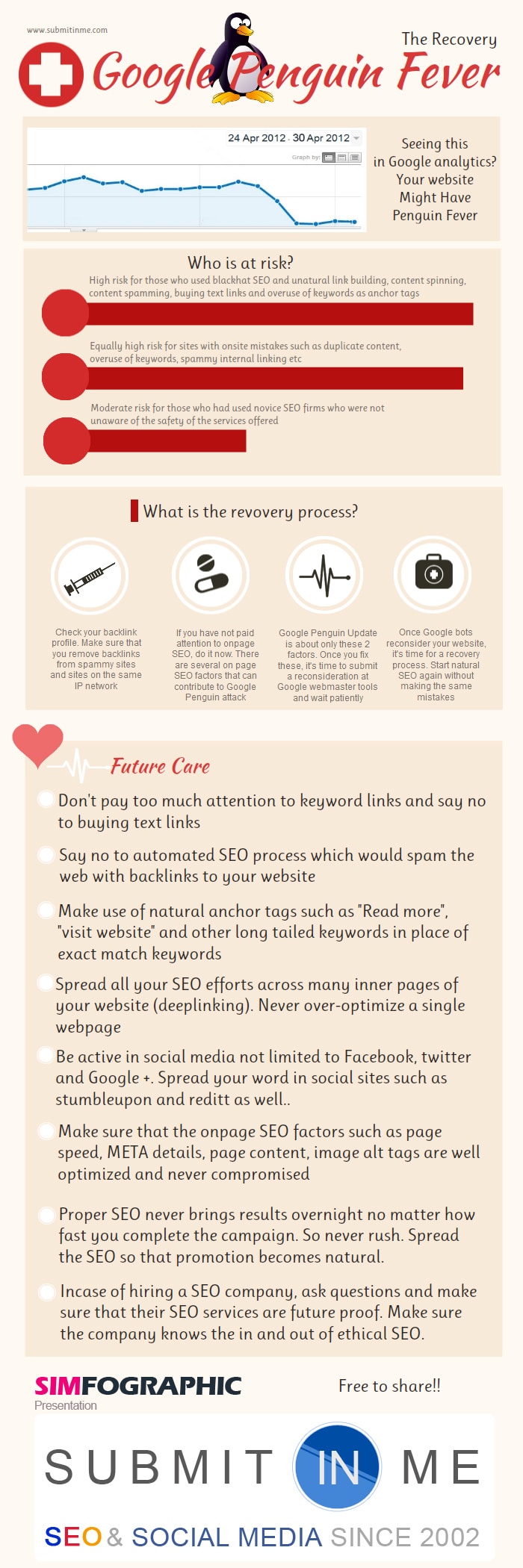
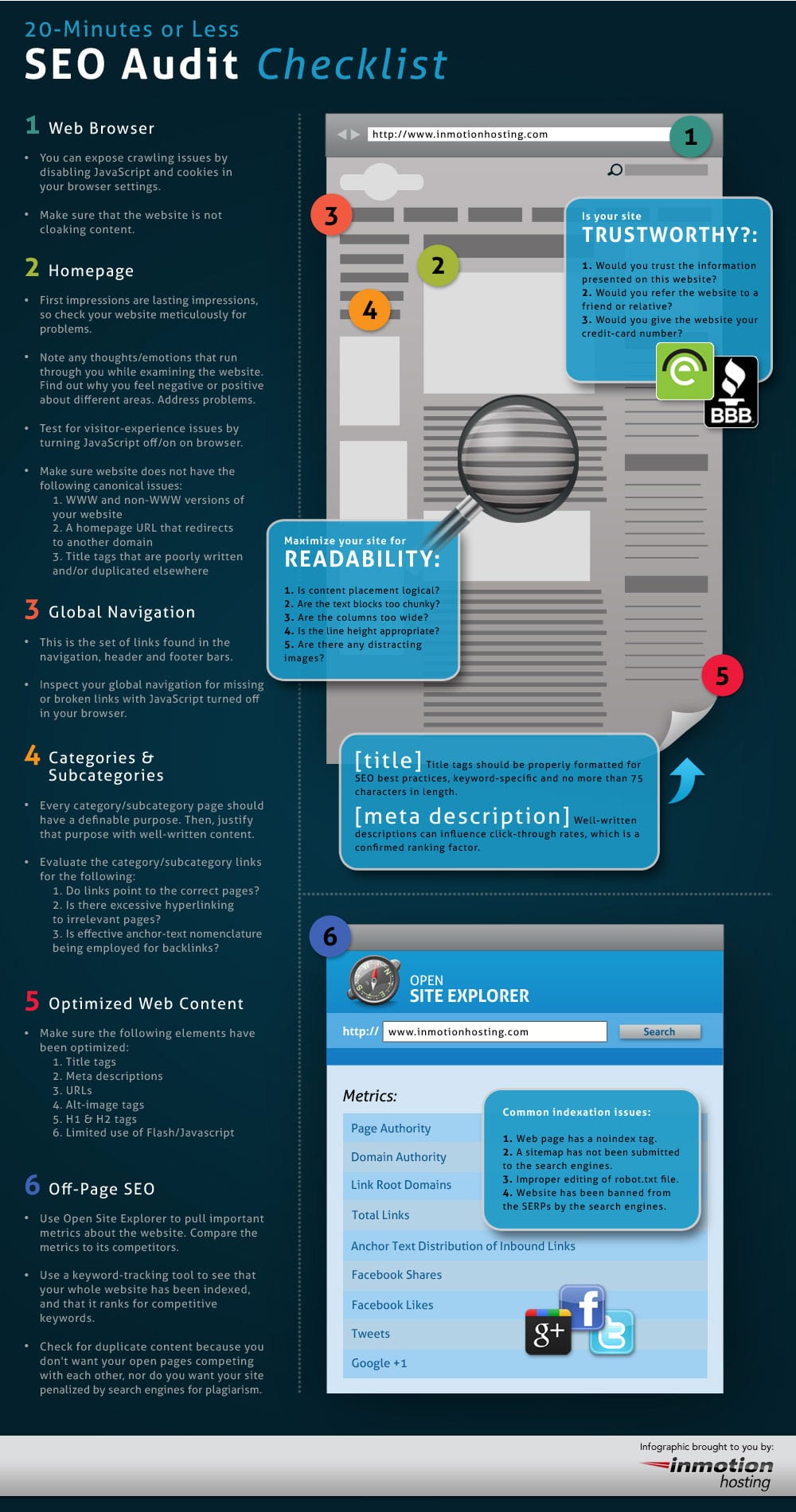
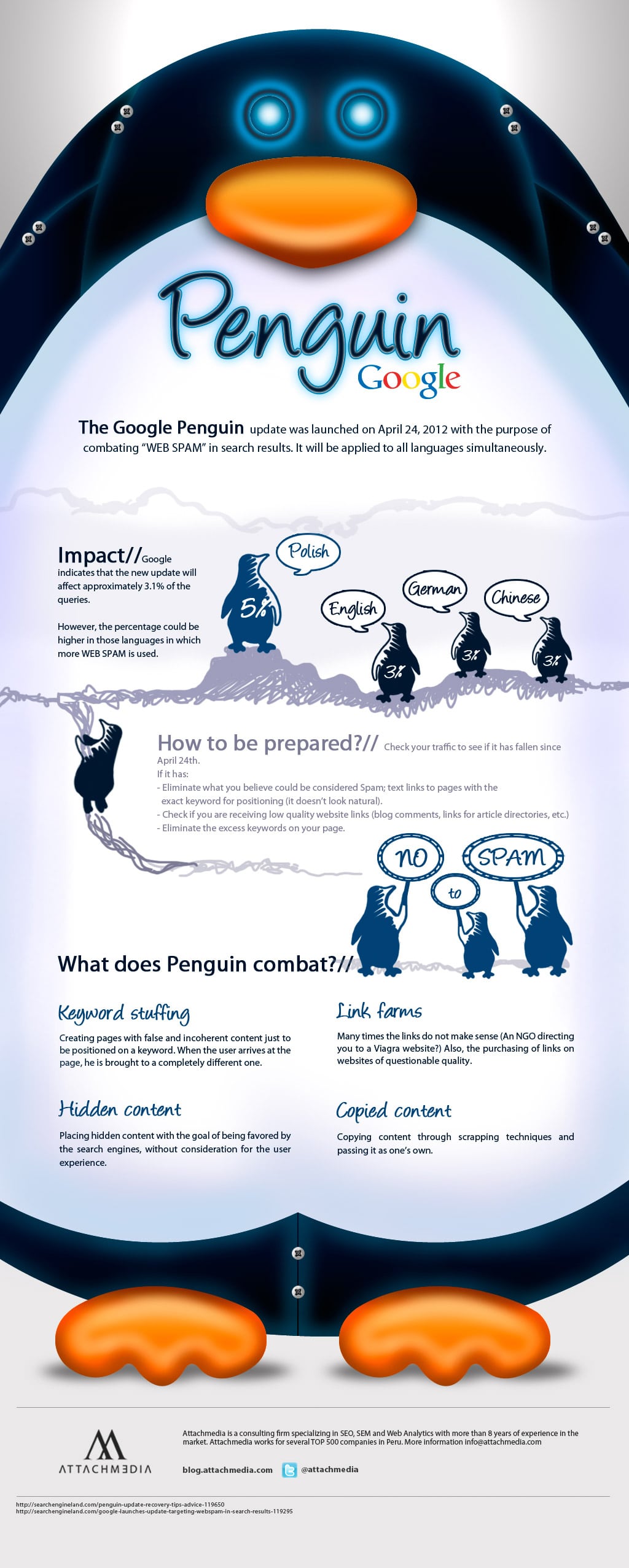
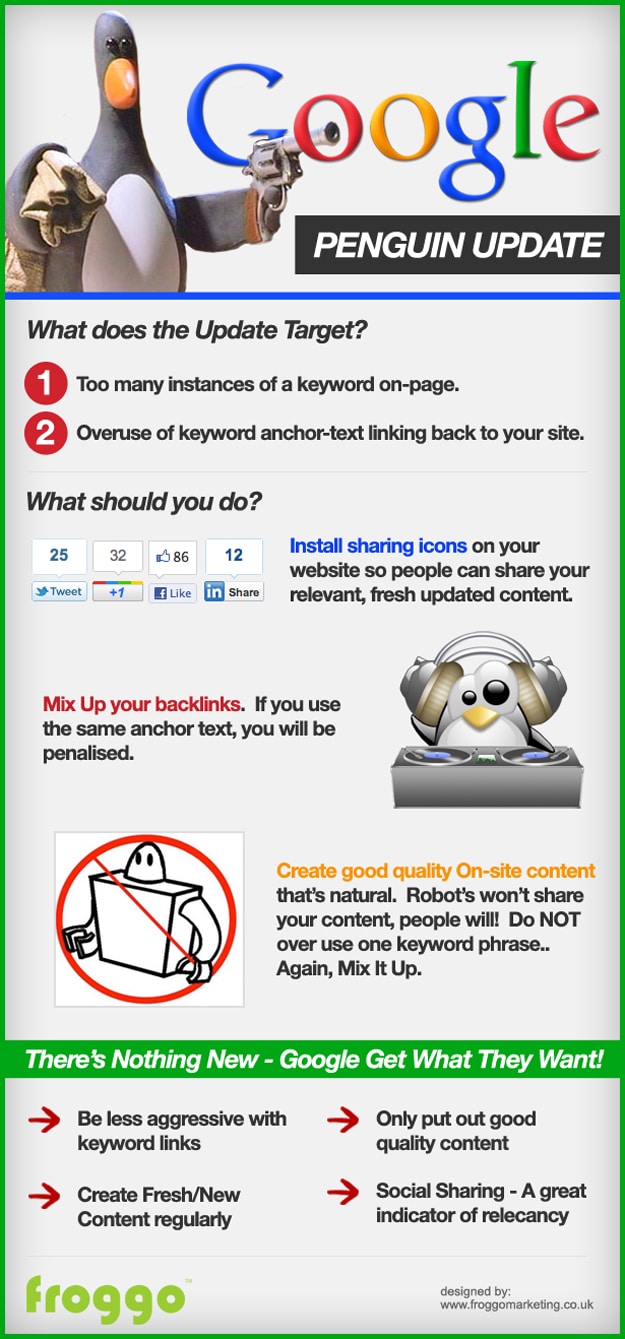
COMMENTS